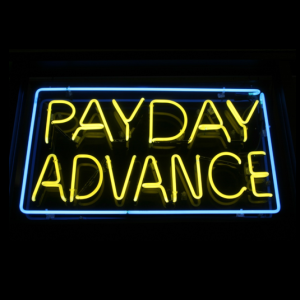In the first half of 2015 the Consumer Financial Protection Bureau (CFPB) will commence rule-making on payday loans and car title loans. While the CFPB may have the best intentions, government actions often have unpredictable and negative consequences for the very citizens they are meant to be protecting.
Consider a 2009 government program meant to help improve the quality of America’s automotive fleet. Immediately after taking office President Obama pushed for “Cash for Clunkers,” a program that gifted consumers a $4,500 rebate if they traded in their old car and bought a new, more fuel-efficient car. President Obama stated at the time that the program “gives consumers a break, reduces dangerous carbon pollution and our dependence on foreign oil, and strengthens the American auto industry.” The New York Times said the program was “an excellent idea, with clear benefits for the environment and beleaguered carmakers.”
“Clunkers” was an instant hit with car buyers. The $1B budgeted to program was spent in two weeks, and the president signed a $2B extension to fund the program through the end of the summer. Afterwards, the president called the program “successful beyond anyone’s imagination.” Today, many researchers disagree that the program was successful in any of the metrics by which its proponents proposed to measure it.
For the consumers that were supposed to get a break, the poor fared the worst. Because the program forbade the recycling of traded-in cars, 750,000 functioning cars were destroyed and turned into scrap metal. This resulted in the used-car market missing the segment of cars that were most affordable for the poor for years after.
The automakers for whom this acted as a bailout saw quite possibly the busiest eight weeks of their careers during this program. The following year, however, customers were nowhere to be found. In addition to pushing forward many sales that would have happened anyway, the program encouraged the purchase of more efficient cars which were smaller and less expensive than what consumers may have purchased without such an incentive. A 2014 study from Texas A&M observed that the program reduced industry revenues by $3B for 2009-2010.
Finally, though this program put more efficient cars on the road, it did so by forcing cars to be destroyed rather than recycled. The environmental transaction cost of building a new car and destroying an old one can easily make up for the difference in carbon emissions between the two. And history shows that as fuel efficiency increases, consumers tend to drive more.
Returning to the topic of the CFPB’s plans to create rules governing how payday lenders, debt collectors, and banks can charge consumers, one can trace a line of unintended consequences that has actually given rise to the industries that the CFPB is now hoping to regulate further.
Consider California, where banks cannot lend to consumers at a rate higher than 12%. Lawmakers like to believe that this allows those with poor credit to receive a reasonable interest rate, but in practice it bars any consumer with a greater than 12% chance of default from accessing lending through banks.
This often forces consumers with higher credit risk, mostly poor, to seek other avenues for borrowing money. As a result, payday lenders have sprung up mostly in poor neighborhoods to serve these un-bankable borrowers.
In recent years payday lenders have seen the rules governing their operations tightened. Again, lawmakers are operating with the best of intentions. They don’t think it’s fair for poor people to pay 50% interest rates on loans. But as the government has clamped down on payday lenders, more people have moved to using car title loan services, wherein a consumer’s automobile is used as collateral for loans averaging $951. As this industry has grown, it too has caught the attention of concerned politicians and bureaucrats – whose very actions spawned its creation.
Unfortunately, prohibiting those with bad credit from accessing payday lenders does not eliminate their need for credit. Rather, this prohibition cuts these folks off from another avenue to access capital, however distasteful the interest rate may be to the bureaucrats in Washington. The less able those individuals are able to access credit from banks, payday lenders, or title loan companies, the more attractive both the neighborhood loan shark and, ultimately, government services become.
If you can see that using taxpayer dollars to pay people to destroy their cars is in many ways a harmful economic policy, consider that banning two willing participants from engaging in commerce may also be harmful – for those individuals and for the economy. The well-intentioned politicians are up to their well-intentioned ways, and the recipients of such good intentions may well wish they were not.

